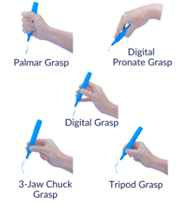English/Writing
Langwith Bassett Junior Academy believes that developing strong English skills is essential for progressing through the curriculum and preparing for adult life. All teachers have a responsibility to develop pupils’ competence in reading, writing, speaking and listening and to ensure that pupils build the language skills necessary to fully access the curriculum.
We recognise the effect that a fluent, legible and coherent writing style can have on pupils’ progress, both inside and outside the school environment. At our school, we provide a broad and balanced literacy curriculum which encompasses focussed writing practice, including handwriting, phonics, spelling, widening vocabulary, and writing for different styles, purposes and audiences.
English Lessons
Langwith Bassett Junior Academy follows the Rising Stars: Reading into Writing (RitW) scheme of work for teaching English. English lessons occur daily. The texts that are studied in the RitW curriculum have been carefully selected to give pupils a breadth of reading experience that includes exploration of themes, philosophical questions, context, the pupil’s own experiences as well as the emotional journey the characters go on in the stories. Thus, RitW helps pupils to develop in the ways intended from the purpose of study, whilst acquiring knowledge and broadening their vocabulary, using all that they learn to express themselves in writing. In this way, RitW develops children’s understanding of themselves, others and the world.
We follow a two-year cycle due to our mixed age classes. Please click on the link below to view.
Spelling
Langwith Bassett Junior Academy believes that foundations for spelling should be put in place from an early age. Within Reception and KS1 the focus is on phonics and pupils are immersed in the world of phonics (closely linked to their early reading development) as soon as they enter school and access a daily phonics lesson. The pupils in Years 1 and 2 also learn the common exception word lists for their year groups. As pupils move towards the end of KS1 the focus changes from phonics to the acquisition of spelling rules and strategies.
From Year 2, Langwith Bassett Junior Academy follows Spelling Shed to support the teaching of spelling rules, common exception words (for Y2) and word lists from the national curriculum (Y3-Y6). Spelling rules are explicitly taught and then practised throughout each week, with a weekly spelling test. Pupils are encouraged to use Spelling Shed when at home in order to practise their weekly spellings.
Link to Spelling Shed: https://www.spellingshed.com
Handwriting
At Langwith Bassett Junior Academy, we want all our pupils to achieve high standards of presentation in their work. We want all pupils to take a pride in their writing and believe that if a pupil is proud of the standard of presentation they have achieved; they will be more enthused and motivated to write again and again. High standards of handwriting and presentation encourage children to become more willing writers.
Fine-motor skill development and correct pencil grip are key to developing handwriting. In Nursery and Reception, children have a daily ‘Dough Disco’ session. These sessions are fun and engaging but are designed to strengthen the children’s finger muscles in order to have better control over their pencils.

Pencil grips develop through different stages as the children develop. Children are assessed on their initial pencil grips and encouraged to work through the developmental stages towards the tripod grip in their dominant hand. In the younger year groups and where necessary, children will be continuously monitored on their pencil grip and fine-motor skills. Where these require further support, fine-motor skill interventions will be put in place.
The scheme of work we follow for handwriting has been adapted from the Nelson scheme of work. Teachers will also use handwriting to support spelling work and vice versa. Handwriting is planned and taught on a daily basis. Each class aims to have one discrete handwriting session each day. Teachers provide individual correction and support for all pupils during lessons, including letter formation, correct posture and pencil/pen grip.
As our children begin to learn to form letters correctly, children are taught handwriting rhymes to support them with remembering the formation and the shape. These rhymes are used consistently across all lessons. Please click on a link below to view the long-term plans for handwriting.
